Paralegal work, in a nutshell, encompasses all the legal tasks that do not require being a lawyer to perform. Paralegals, sometimes called Legal Assistants, are supervised by one or more lawyers Paralegals might work for a business, or on a contract basis, and need at least an associate’s degree, or a suitable certificate paired with a bachelor’s degree.
This college rankings article focuses on online degrees in paralegal studies and related topics, at the associate’s level. Some of the programs referenced may also prepare students for professional certification exams. If you are interested in bachelor-level programs, see our college rankings article on the 15 most affordable bachelor’s degrees in Paralegal Studies
Careers in Paralegal Work
The list below shows some of the jobs and organizations/ industries where career opportunities lie, for graduates of associate’s degrees in paralegal studies and closely-related topics. The information is compiled from the Web pages of the 15 colleges ranked in this article. (Note: some organizations use the term Legal Assistant for roles that are not in fact the same as a Paralegal.)
- administrative support worker
- banks
- businesses
- colleges
- community legal service organizations
- constitutional law paralegal
- consumer organizations
- contract clerk
- corporate legal departments
- corporate legal team member
- corporate paralegal
- corporations
- court clerk
- courts
- criminal law paralegal
- freelancer
- government agencies
- government departments
- government offices
- government paralegal
- information clerk
- insurance companies
- judicial paralegal
- law clerk
- law firm administrator
- law firms
- law libraries
- legal advocate
- legal assistant
- legal document preparer
- legal investigator
- legal secretary
- legal support worker
- legal technician
- litigation paralegal
- nursing paralegal
- office clerk
- paralegal
- public defender paralegal
- real estate development companies
- real estate paralegal
- social security paralegal
- title abstractor
- title examiner
- title insurance paralegal
- title searcher
- trust officer
Rankings: Affordable Online Associate’s Degrees in Paralegal Studies
.jpg)
15: Marshalltown Community College
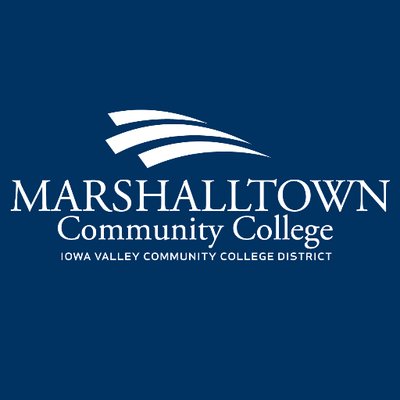
Marshalltown Community College (MCC) is a public community college established in 1927. MCC is part of the Iowa Valley Community College District and its main campus is in Marshalltown, Iowa.
MCC offers two online Paralegal programs, both of which are associate’s degrees. The Associate in Applied Science (AAS) in Paralegal requires 64 credit hours, with about 31 for program requirements, including a practicum. This degree provides students with the legal knowledge and research, writing, and technological skills needed to become successful paralegals or legal assistants. Paralegals can find work with:
- banks
- corporate legal departments
- government agencies
- insurance companies
- law offices
Students who want to continue on to a Paralegal Bachelor’s degree should take MCC’s transfer degree option — the 64-credit-hour Associate in Arts (AA) with an Emphasis in:
- Paralegal banks
- corporate legal departments
- government agencies
- insurance companies
- law offices
Students who want to continue on to a Paralegal Bachelor’s degree should take MCC’s transfer degree option — the 64-credit-hour Associate in Arts (AA) with an Emphasis in Paralegal.
Sample courses:
- Administrative and Bankruptcy Law
- Advanced Legal Research and Writing
- Alternative Dispute Resolution
- Employment Law
- Estate Planning and Probate Law
- Family Law
- Legal Practicum
| Graduation rate: 23%. Transfer-out rate: 23%. In-state tuition: $4,416. Out-of-state tuition: $4,656. Yearly average net price: $8,037. Student population: 2041. # undergrads: 2041. # grads: 0. Campus setting: Rural: Fringe. Campus housing avail.: Yes. Areavibes.com cost of living score: A+. 14: 14: Prince George’s Community College Prince George’s Community College (PGCC) is a public community college established in 1958. The college’s main campus is located in Largo, Maryland. PGCC offers two online Paralegal programs: one Associate’s degree and one certificate. The Associate of Applied Science (AAS) in Paralegal/ Legal Assistant requires at least 60 credits, with about 30 for paralegal and criminal justice courses and electives. This includes: cooperative education and internship/ practicum options. This AAS prepares students to become legal assistants or paralegals, working for: corporations, government agencies, law firms, or providing their services on a freelance basis. Students with this degree will also be able to continue on to a bachelor’s degree. PGCC’s other online Paralegal program is its 30-credit Paralegal/ Legal Assistant Certificate (which can later be applied toward the AAS). Sample courses: Contracts; Criminal Law; Criminal Evidence and Procedures; Legal Ethics; Legal Writing; Techniques of Legal Research; Torts Graduation rate: 9%. Transfer-out rate: 24%. In-state tuition: $5,762. Out-of-state tuition: $8,090. Yearly average net price: $7,986. Student population: 13678. # undergrads: 13678. # grads: 0. Campus setting: Suburb: Large. Campus housing avail.: No. Areavibes.com cost of living score: D. 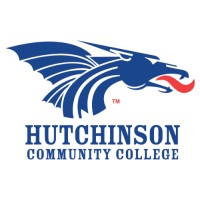 13: Colorado Mountain College Colorado Mountain College (CMC) is a multi-campus, public community college established in 1967. Its main campus is in Glenwood Springs, Colorado. 13: Colorado Mountain College Colorado Mountain College (CMC) is a multi-campus, public community college established in 1967. Its main campus is in Glenwood Springs, Colorado. CMC offers two online Paralegal programs: one Associate’s degree, one certificate. The Associate of Applied Science (AAS) in Paralegal requires 63-64 credit hours. In includes up to 45 for paralegal and criminal justice courses and electives, including a capstone and a cooperative education option. The program meets American Bar Association/ ABA guidelines. Students will learn a number of key legal skills, including: the ability to conduct witness interviews, draft legal documents, perform legal research, and provide trial preparation assistance. Students who already possess a degree in another subject but want to become paralegals/ legal assistants can take CMC’s 36-credit-hour Paralegal Certificate. Sample courses: Civil Litigation; Contracts; Family Law; Juvenile Law and Procedures; Property Law; Substantive Criminal Law; Torts Graduation rate: 24%. Transfer-out rate: 40%. In-state tuition: $2,756. Out-of-state tuition: $9,140. Yearly average net price: $7,938. Student population: 5705. # undergrads: 5705. # grads: 0. Campus setting: Town: Remote. Campus housing avail.: Yes. Areavibes.com cost of living score: F.  12: Hutchinson Community College Hutchinson Community College (HCC) is a public community college established in 1928. HCC’s main campus is in Hutchinson, Kansas, some 55 miles northwest of Wichita, KS, and about 210 miles north and somewhat west of Oklahoma City, Oklahoma. Original name: Hutchinson Junior College. HCC offers two online Paralegal programs: one Associate’s degree and one certificate. The AAS (Associate of Applied Science) in Paralegal requires 64 credit hours, with about 36 for paralegal courses and electives (incl. an internship option) and 6 for other law-related courses. This program prepares students for various voluntary certification exams and will help them become paralegals or legal assistants, performing substantive legal work, under attorney supervision, for corporations, governments, law firms, or public institutions. Students who already have associate’s or bachelor’s degrees but want to transition into becoming a paralegal can take HCC’s 36-credit-hour Paralegal Certificate. Sample courses: Bankruptcy Law; Elder Law; Employment Law; Family Law; Law and the Legal Assistant; Personal Injury and Civil Wrongs; Workers Compensation Law Graduation rate: 33%. Transfer-out rate: 25%. In-state tuition: $3,168. Out-of-state tuition: $4,160. Yearly average net price: $7,635. Student population: 5718. # undergrads: 5718. # grads: 0. Campus setting: Town: Distant. Campus housing avail.: Yes. Areavibes.com cost of living score: A+. 12: Hutchinson Community College Hutchinson Community College (HCC) is a public community college established in 1928. HCC’s main campus is in Hutchinson, Kansas, some 55 miles northwest of Wichita, KS, and about 210 miles north and somewhat west of Oklahoma City, Oklahoma. Original name: Hutchinson Junior College. HCC offers two online Paralegal programs: one Associate’s degree and one certificate. The AAS (Associate of Applied Science) in Paralegal requires 64 credit hours, with about 36 for paralegal courses and electives (incl. an internship option) and 6 for other law-related courses. This program prepares students for various voluntary certification exams and will help them become paralegals or legal assistants, performing substantive legal work, under attorney supervision, for corporations, governments, law firms, or public institutions. Students who already have associate’s or bachelor’s degrees but want to transition into becoming a paralegal can take HCC’s 36-credit-hour Paralegal Certificate. Sample courses: Bankruptcy Law; Elder Law; Employment Law; Family Law; Law and the Legal Assistant; Personal Injury and Civil Wrongs; Workers Compensation Law Graduation rate: 33%. Transfer-out rate: 25%. In-state tuition: $3,168. Out-of-state tuition: $4,160. Yearly average net price: $7,635. Student population: 5718. # undergrads: 5718. # grads: 0. Campus setting: Town: Distant. Campus housing avail.: Yes. Areavibes.com cost of living score: A+.  11: Mohave Community College Mohave Community College (MCC) is a public community college established in 1970. One of MCC’s main campuses is in Kingman, Arizona, some 195 miles northwest of Phoenix, AZ, and around 110 miles southeast of Las Vegas, Nevada. MCC offers two online Paralegal programs: one Associate’s degree, one certificate. The Associate of Applied Science (AAS) in Paralegal requires 62 to 63 credit hours, with 39 for paralegal courses (incl. a capstone-like practicum). The AAS provides students with the abilities and knowledge needed to perform “delegated substantive legal work” under a lawyer’s supervision. Some of these abilities include analyzing and handling procedural problems, conducting legal research, interpreting case law, investigating case facts, and preparing cases for trial. MCC’s other online Paralegal program is its 30-credit-hour Paralegal Certificate. Both programs qualify students for the Arizona Legal Document Preparer Examination. Sample courses: Civil Law and Litigation; Contract Law; Legal Ethics for Paralegals; Legal Research and Writing I and II; Paralegal Practicum; Property Law and Real Estate Transactions; Tort Law Graduation rate: 21%. Transfer-out rate: NA. In-state tuition: $2,112. Out-of-state tuition: $6,972. Yearly average net price: $7,424. Student population: 4744. # undergrads: 4744. # grads: 0. Campus setting: Rural: Fringe. Campus housing avail.: No. Areavibes.com cost of living score: A+. 11: Mohave Community College Mohave Community College (MCC) is a public community college established in 1970. One of MCC’s main campuses is in Kingman, Arizona, some 195 miles northwest of Phoenix, AZ, and around 110 miles southeast of Las Vegas, Nevada. MCC offers two online Paralegal programs: one Associate’s degree, one certificate. The Associate of Applied Science (AAS) in Paralegal requires 62 to 63 credit hours, with 39 for paralegal courses (incl. a capstone-like practicum). The AAS provides students with the abilities and knowledge needed to perform “delegated substantive legal work” under a lawyer’s supervision. Some of these abilities include analyzing and handling procedural problems, conducting legal research, interpreting case law, investigating case facts, and preparing cases for trial. MCC’s other online Paralegal program is its 30-credit-hour Paralegal Certificate. Both programs qualify students for the Arizona Legal Document Preparer Examination. Sample courses: Civil Law and Litigation; Contract Law; Legal Ethics for Paralegals; Legal Research and Writing I and II; Paralegal Practicum; Property Law and Real Estate Transactions; Tort Law Graduation rate: 21%. Transfer-out rate: NA. In-state tuition: $2,112. Out-of-state tuition: $6,972. Yearly average net price: $7,424. Student population: 4744. # undergrads: 4744. # grads: 0. Campus setting: Rural: Fringe. Campus housing avail.: No. Areavibes.com cost of living score: A+. 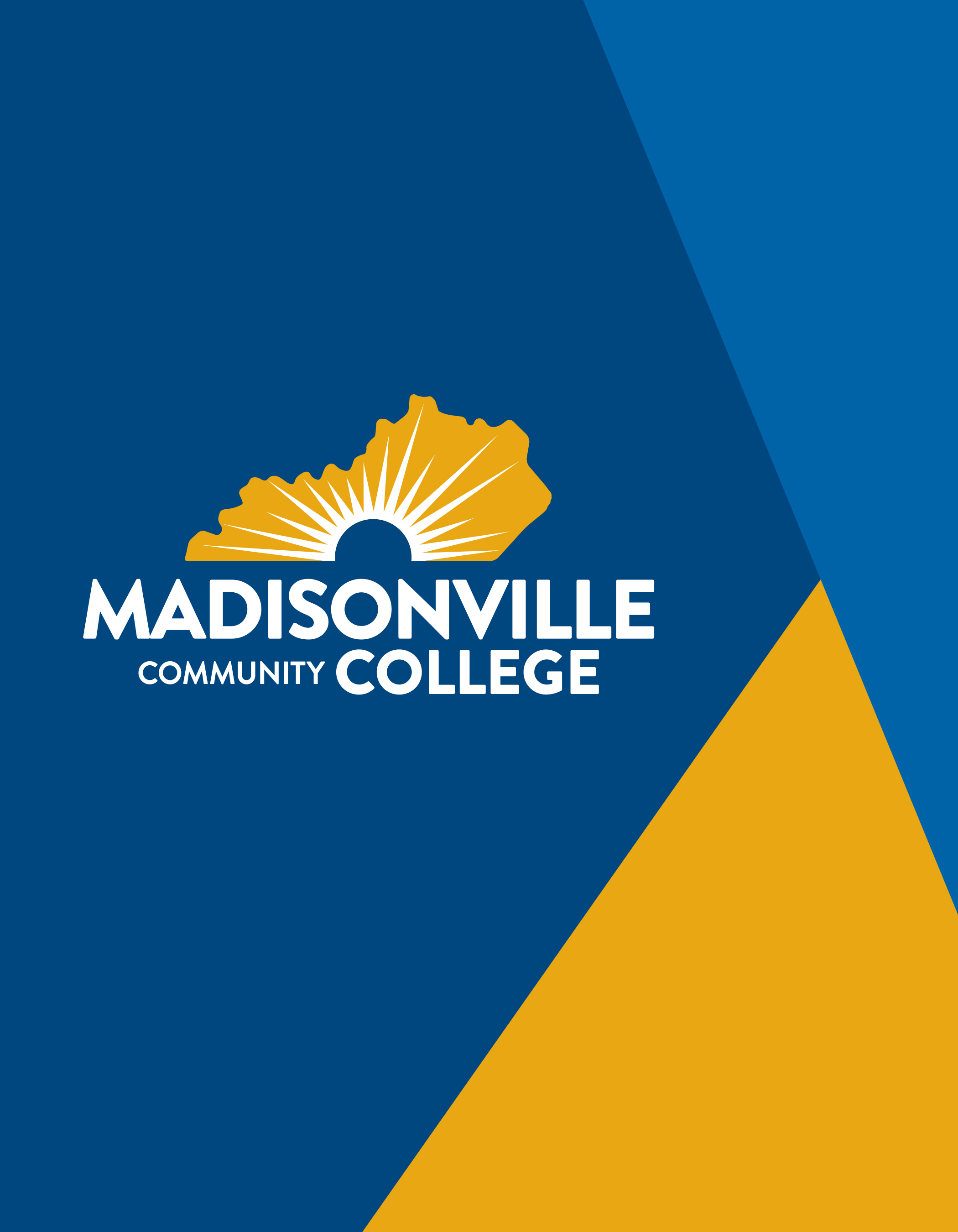 10: Cerro Coso Community College Cerro Coso Community College (CCCC or CC) is a public community college established in 1973. CCCC is part of the Kern Community College District and its main campus is in Ridgecrest, California, about 155 miles northeast of Los Angeles, CA, and around 240 miles southwest of Las Vegas, Nevada. CCCC offers two online Paralegal programs: one Associate’s degree, one certificate. The Associate in Science (AS) in Paralegal Studies requires a minimum of 60 units, with at least 32 for paralegal and other law-related courses. The AS can be completed fully online, although some general education options, if selected, may have some on-campus requirements (check with CCCC for confirmation). This degree prepares students to become paralegals, legal assistants, or document preparers, able to work for attorneys, corporate law offices, courts, or as freelance/ independent providers. CCCC’s other online Paralegal offering is its 32-unit Certificate of Achievement in Paralegal Studies. Sample courses: Bankruptcy Law; Business Law; California and Federal Civil Procedure Legal Forms; Legal Research and Writing I and II; Personal Injury and Tort Litigation; Probate Law; Workers’ Compensation Law Graduation rate: 25%. Transfer-out rate: 16%. In-state tuition: $1,290. Out-of-state tuition: $8,066. Yearly average net price: $7,422. Student population: 4731. # undergrads: 4731. # grads: 0. Campus setting: Rural: Fringe. Campus housing avail.: No. Areavibes.com cost of living score: C+. 10: Cerro Coso Community College Cerro Coso Community College (CCCC or CC) is a public community college established in 1973. CCCC is part of the Kern Community College District and its main campus is in Ridgecrest, California, about 155 miles northeast of Los Angeles, CA, and around 240 miles southwest of Las Vegas, Nevada. CCCC offers two online Paralegal programs: one Associate’s degree, one certificate. The Associate in Science (AS) in Paralegal Studies requires a minimum of 60 units, with at least 32 for paralegal and other law-related courses. The AS can be completed fully online, although some general education options, if selected, may have some on-campus requirements (check with CCCC for confirmation). This degree prepares students to become paralegals, legal assistants, or document preparers, able to work for attorneys, corporate law offices, courts, or as freelance/ independent providers. CCCC’s other online Paralegal offering is its 32-unit Certificate of Achievement in Paralegal Studies. Sample courses: Bankruptcy Law; Business Law; California and Federal Civil Procedure Legal Forms; Legal Research and Writing I and II; Personal Injury and Tort Litigation; Probate Law; Workers’ Compensation Law Graduation rate: 25%. Transfer-out rate: 16%. In-state tuition: $1,290. Out-of-state tuition: $8,066. Yearly average net price: $7,422. Student population: 4731. # undergrads: 4731. # grads: 0. Campus setting: Rural: Fringe. Campus housing avail.: No. Areavibes.com cost of living score: C+.  9: Madisonville Community College Madisonville Community College (MCC) is a public community college established in 1968. MCC is part of the Kentucky Community and Technical College System (KCTCS) and its main campus is in Madisonville, Kentucky, some 155 miles southwest of Louisville, KY, and about 110 miles northwest of Nashville, Tennessee. MCC offers two online Paralegal programs: one Associate’s degree, one certificate. Both programs — which are based on NALA (National Association of Legal Assistants) standards — are part of KCTCS’s Learn by Term online offerings. This means some courses will be delivered by MCC and some by other member colleges. The Associate in Applied Science (AAS) in Paralegal Technology requires 66 credit hours, with 36 for paralegal courses. It prepares students to work as paralegals for banks, courts, corporations, government departments, or law firms. MCC’s other online Paralegal offering is its/ KCTCS’s 39 credit-hour Certificate in Paralegal Technology (which can be applied toward the AAS). Sample courses: Civil Litigation I and II; Ethics; Family Law; Law Office Management; Legal Systems and Terminology; Real Property I and II; Torts Graduation rate: 44%. Transfer-out rate: 3%. In-state tuition: $3,624. Out-of-state tuition: $12,456. Yearly average net price: $7,420. Student population: 4433. # undergrads: 4433. # grads: 0. Campus setting: Rural: Fringe. Campus housing avail.: No. Areavibes.com cost of living score: A+. 9: Madisonville Community College Madisonville Community College (MCC) is a public community college established in 1968. MCC is part of the Kentucky Community and Technical College System (KCTCS) and its main campus is in Madisonville, Kentucky, some 155 miles southwest of Louisville, KY, and about 110 miles northwest of Nashville, Tennessee. MCC offers two online Paralegal programs: one Associate’s degree, one certificate. Both programs — which are based on NALA (National Association of Legal Assistants) standards — are part of KCTCS’s Learn by Term online offerings. This means some courses will be delivered by MCC and some by other member colleges. The Associate in Applied Science (AAS) in Paralegal Technology requires 66 credit hours, with 36 for paralegal courses. It prepares students to work as paralegals for banks, courts, corporations, government departments, or law firms. MCC’s other online Paralegal offering is its/ KCTCS’s 39 credit-hour Certificate in Paralegal Technology (which can be applied toward the AAS). Sample courses: Civil Litigation I and II; Ethics; Family Law; Law Office Management; Legal Systems and Terminology; Real Property I and II; Torts Graduation rate: 44%. Transfer-out rate: 3%. In-state tuition: $3,624. Out-of-state tuition: $12,456. Yearly average net price: $7,420. Student population: 4433. # undergrads: 4433. # grads: 0. Campus setting: Rural: Fringe. Campus housing avail.: No. Areavibes.com cost of living score: A+. 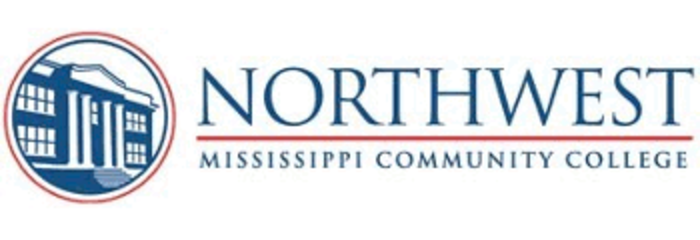 8: Western Piedmont Community College Western Piedmont Community College (WPCC) is a public community college established in 1964. WPCC is part of the North Carolina Community College System and is located in Morganton, North Carolina, about 75 miles northwest of Charlotte, NC, and around 170 miles east and somewhat south of Knoxville, Tennessee. WPCC offers one online Paralegal degree — its Associate in Applied Science (AAS) in Paralegal Technology, which is “recognized by the North Carolina State Bar Paralegal Certification Board as a Qualified Paralegal Studies Program.” The AAS requires 67 semester hours, with 39 for paralegal courses. Most courses are available in an asynchronous, online format, but some do have a synchronous, face-to-face requirement. Students can, however, meet this requirement through online videoconferencing. The degree prepares students to become paralegals or legal assistants, helping lawyers with drafting and filing of legal documents, interviews and investigations, legal research, office management, probate work, and public records searches. Sample courses: Civil Injuries; Commercial Law; Constitutional Law; Criminal Law and Procedure; Ethics and Professionalism; Family Law; Real Property I and II Graduation rate: 22%. Transfer-out rate: NA. In-state tuition: $2,513. Out-of-state tuition: $8,657. Yearly average net price: $7,330. Student population: 2056. # undergrads: 2056. # grads: 0. Campus setting: City: Small. Campus housing avail.: No. Areavibes.com cost of living score: A+. 8: Western Piedmont Community College Western Piedmont Community College (WPCC) is a public community college established in 1964. WPCC is part of the North Carolina Community College System and is located in Morganton, North Carolina, about 75 miles northwest of Charlotte, NC, and around 170 miles east and somewhat south of Knoxville, Tennessee. WPCC offers one online Paralegal degree — its Associate in Applied Science (AAS) in Paralegal Technology, which is “recognized by the North Carolina State Bar Paralegal Certification Board as a Qualified Paralegal Studies Program.” The AAS requires 67 semester hours, with 39 for paralegal courses. Most courses are available in an asynchronous, online format, but some do have a synchronous, face-to-face requirement. Students can, however, meet this requirement through online videoconferencing. The degree prepares students to become paralegals or legal assistants, helping lawyers with drafting and filing of legal documents, interviews and investigations, legal research, office management, probate work, and public records searches. Sample courses: Civil Injuries; Commercial Law; Constitutional Law; Criminal Law and Procedure; Ethics and Professionalism; Family Law; Real Property I and II Graduation rate: 22%. Transfer-out rate: NA. In-state tuition: $2,513. Out-of-state tuition: $8,657. Yearly average net price: $7,330. Student population: 2056. # undergrads: 2056. # grads: 0. Campus setting: City: Small. Campus housing avail.: No. Areavibes.com cost of living score: A+.  7: Northwest Mississippi Community College Northwest Mississippi Community College (NWCC) is a public community and technical college established in 1915. NWCC’s main campus is located in Senatobia, Mississippi, about 170 miles north and slightly east of Jackson, MS, and around 40 miles south of Memphis, Tennessee. Original name: Tate County Agricultural High School. NWCC offers two online Paralegal programs: one Associate’s degree and one certificate. The Associate of Applied Science (AAS) in Paralegal Technology requires a minimum of 60 semester hours, with 33 for paralegal courses and 6 for business law and criminal justice courses. The program suits American Bar Association guidelines and prepares students to become legal assistants or paralegals. Students will gain the knowledge and skills required to work for a variety of organizations that either need or provide legal services, including banks, community legal service organizations, corporate legal departments, government agencies, or law firms. NWCC’s other online Paralegal offering is its 30-semester-hour Certificate in Paralegal Technology (which can be applied toward the AAS). Sample courses: Civil Litigation I and II; Family Law; Legal Research; Legal Writing; Real Property I and II; Torts; Wills and Estates Graduation rate: 22%. Transfer-out rate: 23%. In-state tuition: $2,550. Out-of-state tuition: $4,950. Yearly average net price: $6,547. Student population: 7559. # undergrads: 7559. # grads: 0. Campus setting: Town: Distant. Campus housing avail.: Yes. Areavibes.com cost of living score: A+. 7: Northwest Mississippi Community College Northwest Mississippi Community College (NWCC) is a public community and technical college established in 1915. NWCC’s main campus is located in Senatobia, Mississippi, about 170 miles north and slightly east of Jackson, MS, and around 40 miles south of Memphis, Tennessee. Original name: Tate County Agricultural High School. NWCC offers two online Paralegal programs: one Associate’s degree and one certificate. The Associate of Applied Science (AAS) in Paralegal Technology requires a minimum of 60 semester hours, with 33 for paralegal courses and 6 for business law and criminal justice courses. The program suits American Bar Association guidelines and prepares students to become legal assistants or paralegals. Students will gain the knowledge and skills required to work for a variety of organizations that either need or provide legal services, including banks, community legal service organizations, corporate legal departments, government agencies, or law firms. NWCC’s other online Paralegal offering is its 30-semester-hour Certificate in Paralegal Technology (which can be applied toward the AAS). Sample courses: Civil Litigation I and II; Family Law; Legal Research; Legal Writing; Real Property I and II; Torts; Wills and Estates Graduation rate: 22%. Transfer-out rate: 23%. In-state tuition: $2,550. Out-of-state tuition: $4,950. Yearly average net price: $6,547. Student population: 7559. # undergrads: 7559. # grads: 0. Campus setting: Town: Distant. Campus housing avail.: Yes. Areavibes.com cost of living score: A+.  6: Jones College-Jacksonville Jones College is a private, nonprofit college established in 1918. It is located in Jacksonville, Florida, about 170 miles east of Tallahassee, FL, and some 140 miles roughly north of Orlando, FL. Jones is nationally accredited (by the Accrediting Council for Independent Colleges and Schools) rather than regionally accredited. Jones offers one online Paralegal degree — its Associate in Science (AS) with a Legal Assistant (Paralegal) Major. This AS requires at least 61 credit-hours, with about 37 for the major, including an internship requirement. The program, which is approved by the American Association for Paralegal Education (AAfPE), is available fully online, but is only open to residents of Florida. With the AS, students are able to pursue entry-level positions as paralegals or legal assistants, working for banks, government departments, insurance companies, law firms, savings and loan companies, or title companies. Sample courses: Contracts; Civil Litigation; Immigration Law; Internship in Legal Assisting; Law Office Management; Legal Research and Writing I and II; Torts Graduation rate: 32%. Transfer-out rate: 16%. In-state tuition: $7,650. Out-of-state tuition: $7,650. Yearly average net price: $6,471. Student population: 495. # undergrads: 495. # grads: 0. Campus setting: City: Large. Campus housing avail.: No. Areavibes.com cost of living score: B. 6: Jones College-Jacksonville Jones College is a private, nonprofit college established in 1918. It is located in Jacksonville, Florida, about 170 miles east of Tallahassee, FL, and some 140 miles roughly north of Orlando, FL. Jones is nationally accredited (by the Accrediting Council for Independent Colleges and Schools) rather than regionally accredited. Jones offers one online Paralegal degree — its Associate in Science (AS) with a Legal Assistant (Paralegal) Major. This AS requires at least 61 credit-hours, with about 37 for the major, including an internship requirement. The program, which is approved by the American Association for Paralegal Education (AAfPE), is available fully online, but is only open to residents of Florida. With the AS, students are able to pursue entry-level positions as paralegals or legal assistants, working for banks, government departments, insurance companies, law firms, savings and loan companies, or title companies. Sample courses: Contracts; Civil Litigation; Immigration Law; Internship in Legal Assisting; Law Office Management; Legal Research and Writing I and II; Torts Graduation rate: 32%. Transfer-out rate: 16%. In-state tuition: $7,650. Out-of-state tuition: $7,650. Yearly average net price: $6,471. Student population: 495. # undergrads: 495. # grads: 0. Campus setting: City: Large. Campus housing avail.: No. Areavibes.com cost of living score: B.  5: Ivy Tech Community College Ivy Tech Community College (of Indiana), aka ITCC or Ivy Tech, is a multi-campus, public community college established in 1963. One of Ivy Tech’s main, full-service campuses is in Indianapolis, Indiana, some 115 miles northwest of Cincinnati, Ohio, and about 185 miles southeast of Chicago, Illinois. Original name: Indiana Vocational Technical College. Ivy Tech offers one online Paralegal degree — its Associate of Applied Science (AAS) in Paralegal Studies. This AAS requires a minimum of 60 credit hours, with about 41 for paralegal and legal studies courses (incl. a capstone course that prepares students for the NALA certification exam). The program is available mainly online, but does have some on-campus and/ or in-person requirements (check with Ivy Tech or its website for details). The degree prepares students to become entry-level paralegals or legal assistants, working for businesses, the courts, or law firms. Students will also have the foundation required to continue on to a bachelor’s degree. Sample courses: Bankruptcy Law; Business Associations; Civil Procedure; Family Law; Paralegal Studies Capstone; Property Law; Tort Law Graduation rate: 11%. Transfer-out rate: 17%. In-state tuition: $4,115. Out-of-state tuition: $7,992. Yearly average net price: $6,416. Student population: 91179. # undergrads: 91179. # grads: 0. Campus setting: City: Large. Campus housing avail.: No. Areavibes.com cost of living score: A+. 5: Ivy Tech Community College Ivy Tech Community College (of Indiana), aka ITCC or Ivy Tech, is a multi-campus, public community college established in 1963. One of Ivy Tech’s main, full-service campuses is in Indianapolis, Indiana, some 115 miles northwest of Cincinnati, Ohio, and about 185 miles southeast of Chicago, Illinois. Original name: Indiana Vocational Technical College. Ivy Tech offers one online Paralegal degree — its Associate of Applied Science (AAS) in Paralegal Studies. This AAS requires a minimum of 60 credit hours, with about 41 for paralegal and legal studies courses (incl. a capstone course that prepares students for the NALA certification exam). The program is available mainly online, but does have some on-campus and/ or in-person requirements (check with Ivy Tech or its website for details). The degree prepares students to become entry-level paralegals or legal assistants, working for businesses, the courts, or law firms. Students will also have the foundation required to continue on to a bachelor’s degree. Sample courses: Bankruptcy Law; Business Associations; Civil Procedure; Family Law; Paralegal Studies Capstone; Property Law; Tort Law Graduation rate: 11%. Transfer-out rate: 17%. In-state tuition: $4,115. Out-of-state tuition: $7,992. Yearly average net price: $6,416. Student population: 91179. # undergrads: 91179. # grads: 0. Campus setting: City: Large. Campus housing avail.: No. Areavibes.com cost of living score: A+.  4: Yavapai College Yavapai College (YC) is a public community college established in 1965. Its main campus is in Prescott, Arizona, about 100 miles north and somewhat west of Phoenix, AZ, and around 250 miles southeast of Las Vegas, Nevada. YC offers two online Paralegal programs: one Associate’s degree, one post-degree certificate. The Associate of Applied Science (AAS) in Paralegal Studies (PS) requires at least 61 credits, with 42 for PS courses and electives (incl. an internship option). The AAS prepares students to become paralegals, working for businesses or various legal organizations. The program is also suitable for those who already work in law, but are looking to advance their careers. Students who want to continue on to a bachelor’s degree in PS will need to modify the AAS’s curriculum with an advisor. Those who already have a bachelor’s degree in another subject but would now like to transition into a paralegal career can take YC’s 30-credit Post Degree Certificate in Paralegal Studies. Sample courses: 4: Yavapai College Yavapai College (YC) is a public community college established in 1965. Its main campus is in Prescott, Arizona, about 100 miles north and somewhat west of Phoenix, AZ, and around 250 miles southeast of Las Vegas, Nevada. YC offers two online Paralegal programs: one Associate’s degree, one post-degree certificate. The Associate of Applied Science (AAS) in Paralegal Studies (PS) requires at least 61 credits, with 42 for PS courses and electives (incl. an internship option). The AAS prepares students to become paralegals, working for businesses or various legal organizations. The program is also suitable for those who already work in law, but are looking to advance their careers. Students who want to continue on to a bachelor’s degree in PS will need to modify the AAS’s curriculum with an advisor. Those who already have a bachelor’s degree in another subject but would now like to transition into a paralegal career can take YC’s 30-credit Post Degree Certificate in Paralegal Studies. Sample courses: Civil Tort Litigation I and II; Constitutional Law/ Civil Liberties; Contracts; Ethics and the Law; Legal Computer Applications; Special Legal Topics; Substantive Criminal Law Graduation rate: 27%. Transfer-out rate: 33%. In-state tuition: $2,064. Out-of-state tuition: $8,688. Yearly average net price: $6,204. Student population: 7842. # undergrads: 7842. # grads: 0. Campus setting: City: Small. Campus housing avail.: Yes. Areavibes.com cost of living score: C. 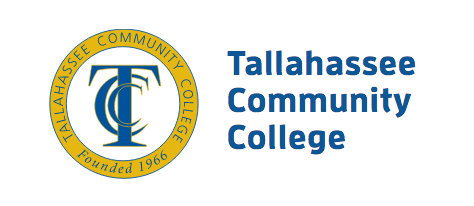 3: Itawamba Community College Itawamba Community College (ICC) provides the third most economical online Associate’s degree in Paralegal in the United States. ICC is a public community college established in 1948, with roots that go back to 1920. Its main campus is in Fulton, Mississippi, some 130 miles southeast of Memphis, Tennessee, and about 120 miles northwest of Birmingham, Alabama. Original name: Itawamba Junior College (est. 1948). ICC offers two online Paralegal programs: one Associate’s degree, one certificate. The Associate of Applied Science (AAS) in Paralegal Technology requires 63-64 semester hours, with at least 33 for paralegal courses, including an internship option. The AAS provides students with the analytical, communication, legal, research, and technical skills needed to become a paralegal or legal assistant. ICC’s other online Paralegal offering is its 30-hour Certificate of Completion in Paralegal Technology, which can be applied toward the AAS. (The college also offers a 60-hour Associate of Arts/ AA in General Studies with a Paralegal Concentration that may be available for online study; check with ICC for confirmation and details.) Sample courses: Civil Litigation I and II; Internship for Paralegal; Law Office Management; Legal Research; Legal Writing; Real Property I and II; Wills and Estates Graduation rate: 37%. Transfer-out rate: 19%. In-state tuition: $2,420. Out-of-state tuition: $4,620. Yearly average net price: $6,070. Student population: 5654. # undergrads: 5654. # grads: 0. Campus setting: Town: Remote. Campus housing avail.: Yes. Areavibes.com cost of living score: A+. 3: Itawamba Community College Itawamba Community College (ICC) provides the third most economical online Associate’s degree in Paralegal in the United States. ICC is a public community college established in 1948, with roots that go back to 1920. Its main campus is in Fulton, Mississippi, some 130 miles southeast of Memphis, Tennessee, and about 120 miles northwest of Birmingham, Alabama. Original name: Itawamba Junior College (est. 1948). ICC offers two online Paralegal programs: one Associate’s degree, one certificate. The Associate of Applied Science (AAS) in Paralegal Technology requires 63-64 semester hours, with at least 33 for paralegal courses, including an internship option. The AAS provides students with the analytical, communication, legal, research, and technical skills needed to become a paralegal or legal assistant. ICC’s other online Paralegal offering is its 30-hour Certificate of Completion in Paralegal Technology, which can be applied toward the AAS. (The college also offers a 60-hour Associate of Arts/ AA in General Studies with a Paralegal Concentration that may be available for online study; check with ICC for confirmation and details.) Sample courses: Civil Litigation I and II; Internship for Paralegal; Law Office Management; Legal Research; Legal Writing; Real Property I and II; Wills and Estates Graduation rate: 37%. Transfer-out rate: 19%. In-state tuition: $2,420. Out-of-state tuition: $4,620. Yearly average net price: $6,070. Student population: 5654. # undergrads: 5654. # grads: 0. Campus setting: Town: Remote. Campus housing avail.: Yes. Areavibes.com cost of living score: A+.  2: Tallahassee Community College Second on our list of the most inexpensive online Paralegal Associate’s degrees is an offering from Tallahassee Community College (TCC), a public community college established in 1966. TCC is part of the Florida College System, and its main campus is in Tallahassee, Florida, some 170 miles west of Jacksonville, FL, and about 190 miles east and slightly north of Pensacola, FL. Original name: Tallahassee Junior College. TCC offers one online Paralegal program — its Associate in Science (AS) in Paralegal and Legal Studies. This AS requires 64 credit hours, with 46 for the program core (at least 34 of which are for paralegal/ legal studies courses). The degree is designed to provide a broad understanding of the law, as well as opportunities to gain deeper insights into specific areas of legal interest. Students with this AS will be prepared to become paralegals or legal assistants. The program can be taken as a mix of day, evening, and online classes or entirely online (although some courses may have on-campus requirements; check the website or with TCC directly for specific details). Sample courses: Family Law; Law Office Procedures and Management; Legal Research; Legal Writing; Litigation Procedures I and II; Real Estate Law and Property Transactions; Wills, Trusts, and Probate 1: Central Texas College Central Texas College (CTC) offers the most affordable online Paralegal Associate’s degree in the United States. CTC is a public community college established in 1965. Its main campus is in Killeen, Texas, some 70 miles north of Austin, TX, and about 155 miles southwest of Dallas, TX. CTC offers two online Paralegal programs: one associate’s degree, one certificate. The Associate of Applied Science (AAS) in Paralegal/ Legal Assistant requires 60 credit hours, with 33 for paralegal/ legal assistant courses and electives (incl. an internship option). The AAS prepares students to become paralegals, legal assistants, or legal clerks, and find work with corporate, government, or military legal departments. Students with the AAS will also have the foundation needed to continue on to additional legal studies and potentially even law school. CTC’s other online Paralegal option is its 30-credit-hour Paralegal/ Legal Assistant Certificate of Completion, which the college refers to as a “job starter” program. Sample courses: Advanced Civil Litigation; Criminal Law and Procedures; Law Office Technology; Legal Research and Writing; Military Law; Torts and Personal Injury Law; Wills, Trusts, and Probate Administration Graduation rate: 35%. Transfer-out rate: 24%. In-state tuition: $2,026. Out-of-state tuition: $8,062. Yearly average net price: $4,307. Student population: 13049. # undergrads: 13049. # grads: 0. Campus setting: City: Midsize. Campus housing avail.: No. Areavibes.com cost of living score: A+. Graduation rate: 9%. Transfer-out rate: 8%. In-state tuition: $2,940. Out-of-state tuition: $6,420. Yearly average net price: $4,101. Student population: 20547. # undergrads: 20547. # grads: 0. Campus setting: City: Midsize. Campus housing avail.: Yes. Areavibes.com cost of living score: A+. 2: Tallahassee Community College Second on our list of the most inexpensive online Paralegal Associate’s degrees is an offering from Tallahassee Community College (TCC), a public community college established in 1966. TCC is part of the Florida College System, and its main campus is in Tallahassee, Florida, some 170 miles west of Jacksonville, FL, and about 190 miles east and slightly north of Pensacola, FL. Original name: Tallahassee Junior College. TCC offers one online Paralegal program — its Associate in Science (AS) in Paralegal and Legal Studies. This AS requires 64 credit hours, with 46 for the program core (at least 34 of which are for paralegal/ legal studies courses). The degree is designed to provide a broad understanding of the law, as well as opportunities to gain deeper insights into specific areas of legal interest. Students with this AS will be prepared to become paralegals or legal assistants. The program can be taken as a mix of day, evening, and online classes or entirely online (although some courses may have on-campus requirements; check the website or with TCC directly for specific details). Sample courses: Family Law; Law Office Procedures and Management; Legal Research; Legal Writing; Litigation Procedures I and II; Real Estate Law and Property Transactions; Wills, Trusts, and Probate 1: Central Texas College Central Texas College (CTC) offers the most affordable online Paralegal Associate’s degree in the United States. CTC is a public community college established in 1965. Its main campus is in Killeen, Texas, some 70 miles north of Austin, TX, and about 155 miles southwest of Dallas, TX. CTC offers two online Paralegal programs: one associate’s degree, one certificate. The Associate of Applied Science (AAS) in Paralegal/ Legal Assistant requires 60 credit hours, with 33 for paralegal/ legal assistant courses and electives (incl. an internship option). The AAS prepares students to become paralegals, legal assistants, or legal clerks, and find work with corporate, government, or military legal departments. Students with the AAS will also have the foundation needed to continue on to additional legal studies and potentially even law school. CTC’s other online Paralegal option is its 30-credit-hour Paralegal/ Legal Assistant Certificate of Completion, which the college refers to as a “job starter” program. Sample courses: Advanced Civil Litigation; Criminal Law and Procedures; Law Office Technology; Legal Research and Writing; Military Law; Torts and Personal Injury Law; Wills, Trusts, and Probate Administration Graduation rate: 35%. Transfer-out rate: 24%. In-state tuition: $2,026. Out-of-state tuition: $8,062. Yearly average net price: $4,307. Student population: 13049. # undergrads: 13049. # grads: 0. Campus setting: City: Midsize. Campus housing avail.: No. Areavibes.com cost of living score: A+. Graduation rate: 9%. Transfer-out rate: 8%. In-state tuition: $2,940. Out-of-state tuition: $6,420. Yearly average net price: $4,101. Student population: 20547. # undergrads: 20547. # grads: 0. Campus setting: City: Midsize. Campus housing avail.: Yes. Areavibes.com cost of living score: A+.NOTES In terms of topic categories searched in the NCES.ed.gov database, we queried for programs in the category “Legal Assistant/Paralegal.” For online degree rankings, if a college does not report graduation rate, it is shown as 0% for that institution, for the purposes of charting and statistical summaries. A college’s tuition for online programs may differ than that quoted for the on-campus program. This could be due to either or both of technology fees and out-of-state-portion waivers. Check with a college if you’re unsure. We have listed the tuition and net price values recorded in the NCES.ed.gov database. As accreditation can change or only be valid regionally, please verify accreditation of any college to which you are planning to apply. NCES data is subject to change and some of these “affordable degrees” guides may use more recent data than described in the Methodology. For the full list of programs covered to date, please check our School Rankings page. Online programs are strongly self-directed and recommended only for students who are self-driven when it comes to studying and researching. Some online program selection tips: Spend the time to carefully read the degree requirements. Browse the course curriculum and make notes of the courses that interest you most. Consider creating a spreadsheet to compare summaries of course/ programs across the schools referenced here. If you are looking for a minimum set of courses, make a list of those courses, one per column. Then list ranked schools vertically in the spreadsheet, one per row. Color code or make an annotation for each course offered by a given school. Add other columns to record information about tuition, net price, #credits/ courses required, etc., and color code their cells as suitable. This visual approach to online program selection can be quite effective compared to staring at bare numbers. The methodology for this series on online bachelor’s degrees is essentially the same as for our 15-school college rankings list. For example, see the “Methodology” section of the ranking list article 15 of the Most Affordable Bachelor’s Degrees in Marketing for an explanation of the process we use to rank colleges in each topical bachelor’s list. Other Rankings of Interest: 20 Tuition-Free Colleges The 10 Most Affordable Law Schools in the United States The 50 Most Affordable Colleges with the Best Return 15 Best Affordable Paralegal Studies Degree Programs (Bachelor’s) 25 Most Affordable Large, Private, Nonprofit Bachelor’s Colleges 30 Most Inviting Yet Affordable College Dorms in America 25 Largest HBCU Bachelor’s Colleges by Enrollment The 30 Most Affordable Online Bachelor’s-Granting Historically Black Colleges/ Universities |

 The Best Colleges
The Best Colleges The Lowest Costs
The Lowest Costs The Highest Returns
The Highest Returns